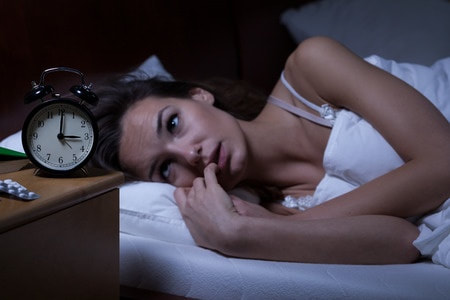 Sleep is really important. During sleep, there is all sorts of repair that goes on in your body. In layman's terms, the body shuts down from it's daytime activities and can focus on internal housekeeping. Waste and toxins are removed from the brain during sleep. Consolidation of memories occur when you sleep. But what happens when you don't sleep? All of these health promoting processes are interfered with. And that's called insomnia. Insomnia is subdivided into different types.
I have a variety of things I can use to treat people with sleep disorders. Neurofeedback Yes, neurofeedback can have great effects on sleep. And it makes sense, because it is your brainwaves that change when you fall asleep. While every individual is different, often stimulation of the sensory-motor rhythm (SMR) can greatly improve people's sleep. Chiropractic Many people report improvements in sleep patterns after undergoing chiropractic care. I myself find that difficulty sleeping can be an indicator that I need a chiropractic adjustment. Generally speaking, chiropractic increases parasympathetic nervous system activity. As with so much of chiropractic, more research is needed to validate what people have been saying for decades. Biofeedback Not to be confused with neurofeedback, biofeedback measures things that are indicative of a non-relaxed state in the human body. These are things like temperature, heart rate variability, and galvanic skin response. You can learn how to relax your body and increased parasympathetic nervous system activity by doing biofeedback. And that's good for sleeping and health in general. Nutrition Valerian root can be very effective for treating sometimes of insomnia. It is an herb and I used to take it the night before a big test or national boards when I was in school. There are other supplements like melatonin and 5-hydroxytryptophan that can be used as well. However, it is important to not ignore addressing the reasons why a person may not be making enough melatonin or why they are not absorbing the nutrients they need to create the proper neurotransmitters. That is really a topic for another discussion. Psychotherapy Intertwined with all of this is stress. There's insomnia for no reason and then there is insomnia related to stress in life. Psychotherapy can help identify the cognitions that may be contributing to the sleepless state. Insomnia doesn't always exist in a bubble. It can relate to lots of other mental health problems including anxiety, depression and trauma. That's an advantage to working with someone who is a licensed psychotherapist - they can help tease out what is what to determine the most appropriate and effective interventions. As you can see there really are a lot of treatments for insomnia that I can offer people that do not involve taking medicine. If you are suffering from insomnia and looking for help, please contact my office so that we can set up an appointment and discuss treatment options tailored to your individual needs. Image above Copyright: <a href='https://www.123rf.com/profile_bialasiewicz'>bialasiewicz / 123RF Stock Photo</a>
0 Comments
|
AuthorI'm a Chiropractic Physician, Psychotherapist and researcher. I'm interested in helping people live their lives to their full potential. That could be simply without pain. Or it could be without more complicated physical or mental health problems. Or it could be getting help in making changes in their life so that they can achieve their dreams. Archives
June 2023
Categories |
 RSS Feed
RSS Feed